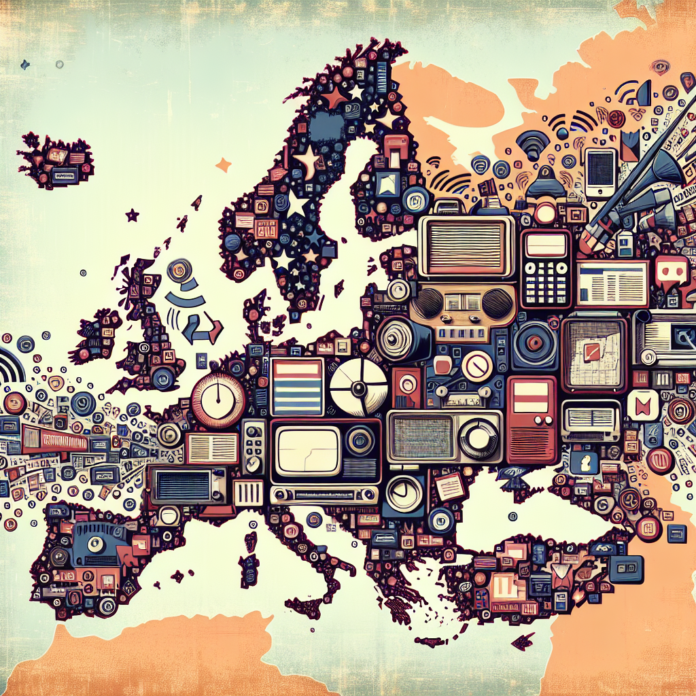Bishop Viganò and the Spread of Disinformation Across Europe: A Thorough Analysis
In the grand tapestry of modern European society, where multiculturalism and progressive values have found their ground, there are those who resonate with the dissonant echoes of a bygone era. Amongst them, Archbishop Carlo Maria Viganò stands as a vocal critic whose rhetoric has fanned the flames of disinformation and threatened the progressive ethos painstakingly cultivated over the years. His influence, particularly within the realms of traditionalist Catholicism and those attached to the Latin Mass, heralds a regressive step not only for the Catholic Church but for broader European society committed to advancement and equality.
To comprehend the depth of Viganò’s influence, it is crucial to delve into his rise within the ecclesiastical hierarchy. Ordained in 1968, his career reached significant heights when he was appointed as Apostolic Nuncio to the United States in 2011. However, Viganò is arguably more notorious for his outspoken dissent against Pope Francis, criticizing a pontificate striving ardently for inclusivity, transparency, and a pastoral approach that aligns closely with the needs of the contemporary world.
The Backlash Against Progress
The bedrock of Europe’s progression has often been its deviation from rigid, conservative institutions that sought to dictate every moral and social fiber of its people’s lives. Pope Francis has championed numerous modernizing reforms since his papacy began in 2013—among them, the Church’s more compassionate stance on climate change, economic inequality, and social justice. These reforms resonate deeply with many Catholics and non-Catholics alike who find alignment in the Church’s new, more human-centered focus. Notably, the Pope’s critical stance on clerical sexual abuse and his efforts to increase inclusivity for marginalized communities have been revolutionary.
In direct contrast, Bishop Viganò presents an opposition rooted in a nostalgic yearning for an unyielding, dogmatic past. With his allegiances clearly to the more traditional element of Catholicism—those who predominantly celebrate the Latin Mass—Viganò’s arguments often appear designed to rekindle the fires of division rather than mend the gaps in modern society. The Latin Mass, while culturally rich, has come to symbolize a form of resistance against ecclesial progressiveness, sometimes inadvertently fostering environments resistant to the progressive values of today’s world.
The Spread of Disinformation
Viganò’s greatest impact, arguably, has been his role in propagating disinformation. His most sensational moment occurred in 2018, when he released a letter accusing Pope Francis of mishandling the case of Cardinal Theodore McCarrick, who was found guilty of sexual abuse. In his letter, Viganò claimed that Pope Francis had knowingly ignored McCarrick’s transgressions. Notably, these claims were steeped in ambiguity and lacked concrete evidence, yet they were retrieved and broadcasted by conservative media outlets, sowing discord within the Church and beyond.
This association with disinformation extends to his more general commentary on global affairs. Not uncommonly, his speeches and writings have espoused positions intertwined with conspiracy theories that find a more welcome audience among far-right circles than in the mainstream. Specifically, his take on the COVID-19 pandemic has included bizarre assertions that link health measures to draconian global control tidily woven from the conspiratorial fabric. Such rhetoric exacerbates divisions and cultivates mistrust within and beyond ecclesiastical boundaries.
Traditionalism’s Hurdle to Progress
Traditionalist Catholicism, particularly under the auspices of figures like Viganò, serves as a resistant force to the narrative of progress. Europe, with its intricate history of Enlightenment thought and the resultant socio-political transformations, finds itself often at odds with institutional traditionalism. The Latin Mass, for instance, goes beyond the ancient liturgical practice—it enshrines an exclusive mindset where change is seen as contamination rather than evolution.
Historically, the Catholic Church’s rigidity has often become an obstacle to social and scientific advancements—the trial of Galileo is a stark example. While the Church has made tremendous efforts to reconcile with such historical missteps, traditionalists today seem reticent to walk this path of reconciliation and adaptation fully. Viganò and his supporters cling to a "fortress" mentality—seeing the Church as an embattled remnant in need of defense from modernity rather than an evolving institution.
The Progressive Vision: A Need for Balance
In juxtaposition stands the vision promoted by Pope Francis, characterized by an embrace of humane, inclusive values that resonate with the core teachings of Christ’s compassion. From advocating for the poor to emphasizing the importance of caring for the environment, Francis’ leadership embodies a progressive hope—a Church not as a relic of the past but as an active participant in shaping a better future.
Moreover, his approach to interfaith dialogue, notably welcoming discussions with other religious leaders and secular figures alike, opens avenues for mutual understanding and peace. These are the markers of a Church that seeks harmony internally and externally. Without discounting the profound spiritual heritage that traditional practices offer, the challenge remains to transcend a myopic allegiance to the past in favor of a broader, more accommodating path.
Conclusion
As Europe continues to navigate its multifaceted cultural and spiritual landscape, the clash between progressive values and staunch traditionalism will persist as a significant narrative. Bishop Viganò and his cohort represent a retreat to rigid orthodoxy counterproductive to the burgeoning aspirations of a more just and equitable society. It is imperative that the progressive momentum championed by leaders like Pope Francis continues to foster inclusivity, compassion, and openness. The future of the Catholic Church and, by extension, European society rests on our collective ability to embrace progress, transcending the boundaries of divisiveness sown by voices of disinformation and regressive traditionalism.
